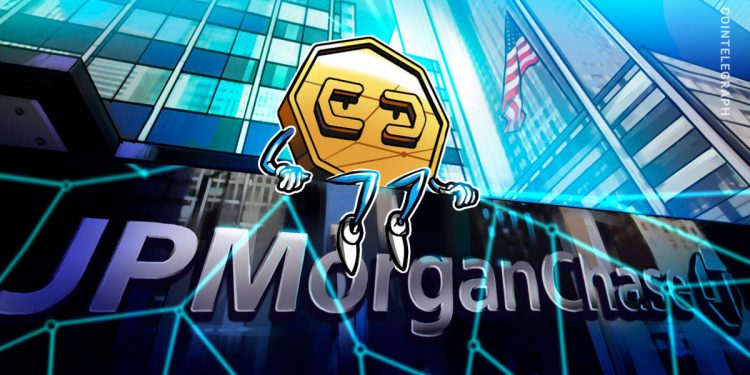Leading financial institutions are continuing to explore blockchain technology to facilitate cheaper and faster institutional payments, signaling a growing interest in tokenization solutions.
US investment bank JPMorgan and Singapore multinational banking group DBS announced Tuesday that they are developing a blockchain-based tokenization framework to enable onchain transfers between their deposit token ecosystems. The effort aims to set a new industry standard for cross-bank digital payments.
The tokenization framework will allow the two financial institutions to facilitate instant payments around the clock, across both public and permissioned blockchain networks, providing their institutional clients with broader access to cross-bank onchain transactions.
According to DBS, the new framework will allow institutional clients of both banks to exchange or redeem tokenized deposits and conduct real-time cross-border payments on both public and permissioned blockchain networks. The system is designed to operate 24 hours a day, seven days a week, providing what DBS called “round-the-clock availability.”
The new interoperability framework comes amid a period of growing institutional interest in tokenized financial solutions, which are part of the broader tokenized real-world assets (RWA) sector, aiming to bring financial and tangible assets on the blockchain to increase investor access.
At least one-third of surveyed commercial banks have launched, piloted, or researched tokenized deposits, according to a 2024 survey by the Bank for International Settlements (BIS).
Banks push for interoperability in tokenized finance
Some of the largest Swiss banks, including UBS, PostFinance and Sygnum Bank, are also exploring blockchain-based interbank payments.
On Sept. 16, these institutions completed the first blockchain-based, legally binding payment, proving the technology’s efficacy for bank deposits and institutional payments.
Related: Standard Chartered venture arm to raise $250M for crypto fund: Report
Creating an interoperable framework remains critical for reducing fragmentation in tokenized, cross-border money transfers, according to Rachel Chew, group chief operating officer and head of digital currencies, global transaction services at DBS Bank.
“Our collaboration with Kinexys by J.P. Morgan to develop an interoperability framework is therefore a significant milestone for cross-border money movement,” said Chew, adding that instant, 24/7 payments will offer businesses more “optionality, agility and speed to navigate global uncertainties and capture emerging opportunities.”
Related: Standard Chartered sees $2T in tokenized RWAs by 2028, matching stablecoins
The new framework was announced two weeks after JPMorgan initiated the first transaction on its upcoming tokenization platform, Kinexys Fund Flow, Cointelegraph reported on Oct. 30.
The investment bank is preparing to launch its tokenization platform in 2026, with plans to tokenize additional assets, including private credit and real estate.
JPMorgan and DBS were also some of the main backers of Patrior, a blockchain-based settlement network and payment platform, which raised $60 million in July 2024.
Magazine: Crypto wanted to overthrow banks, now it’s becoming them in stablecoin fight





















